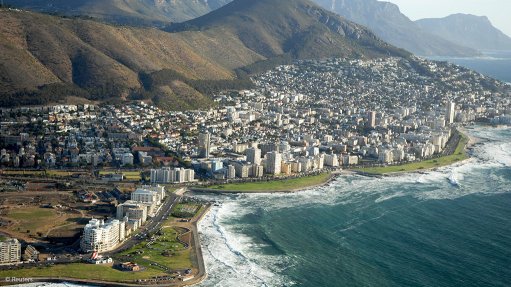
Photo by: Reuters
The City of Cape Town plans to issue a tender for the procurement of electric buses for the MyCiTi service, in line with its commitment to lowering carbon emissions, mayor Patricia de Lille said in a statement published on the city’s website on Wednesday.
“Since its inception in May 2010, the MyCiTi service has significantly improved the quality of life of our residents through access to affordable, decent and safe public transport,” she noted, adding that almost 38.5-million passenger journeys have been recorded on the service to date, with a total number of 1.53-million passenger journeys recorded for the month of November 2015.
De Lille outlined that the city had a responsibility to lower its carbon emissions, while expanding the footprint of the MyCiTi service and, as such, sought to procure a fleet of 12 m electric buses.
The tender, which specified that the electric buses should be able to travel at least 250 km in traffic before the batteries needed recharging, would be advertised by the first week of February.
The city was also considering electric double-decker buses for longer-distance trips, as these had more seating capacity.
“Cities across the world will soon reach a point where alternative fuel for public transport is no longer a choice but a prerequisite and, as such, the City of Cape Town has decided to expand our current fleet of diesel buses with electric ones,” De Lille said.
Besides the buses, the successful bidder would also need to provide the city with the charging stations for the buses and the necessary training for the bus drivers and mechanical engineers.
“Researchers have made great advances in the development of electric buses over the past decade, some of which were presented at the African Union of Public Transport Workshop that was hosted by Transport for Cape Town in October last year.
“If all goes according to plan, Transport for Cape Town will be the first municipality in the country to benefit from the latest alternative fuel technology and we will be the first city in Africa to use electric buses for public transport,” she enthused.
The operational cost of electric buses was expected to be significantly lower than conventional buses, not only in terms of fuel, but also in relation to maintenance as there were fewer parts to service.
Electric buses were also “easier to drive, the motors generate less heat than traditional diesel engines, there is much less noise and it is a smoother drive for passengers and bus drivers alike”.
This initiative directly supported the City of Cape Town’s commitment to the Paris Pledge for Action at the twenty-first Conference of the Parties, held in Paris, France, in December.
De Lille further pointed out that the city’s Energy 2040 Strategy set carbon targets and that projects such as these would ensure that the city reached those targets.
Transport for Cape Town had researched and was exploring the most appropriate mechanism for the procurement of solar technology to offset the energy required for the electric bus fleet, thereby further reducing emissions.
This was in addition to the carbon credits that the city would earn for operating a green fleet. “As we reduce our carbon footprint, Transport for Cape Town will earn carbon credits which the city will be able to sell to developed countries who are signatories to the Kyoto Protocol.
“This will generate much-needed revenue for the city and result in public transport benefits for residents, making this investment even more worth our while,” De Lille explained.